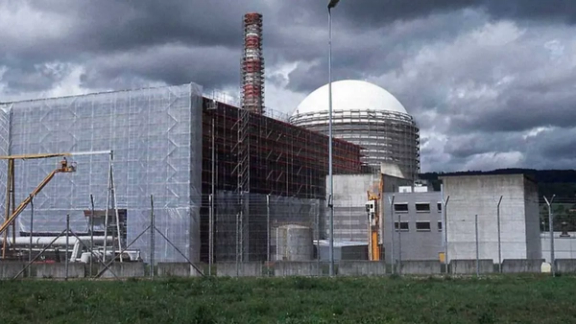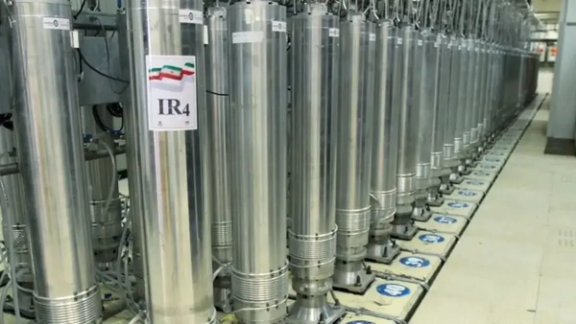Iran’s atomic chief says nuclear doctrine rests with top leadership

Decisions concerning Iran's nuclear doctrine are made exclusively by the nation’s highest authorities, the head of the Atomic Energy Organization of Iran (AEOI) said on Wednesday.

Decisions concerning Iran's nuclear doctrine are made exclusively by the nation’s highest authorities, the head of the Atomic Energy Organization of Iran (AEOI) said on Wednesday.
Iran's potential interest in nuclear weapons has come into focus days ahead of the return to the White House of Donald Trump, who has vowed to deny Tehran a bomb.
Responding to parliamentary discussions on nuclear weapons, Eslami said, "Parliament members express their own views, but decisions regarding the nuclear doctrine are made at the highest levels of the system and by the relevant authorities."
Eslami added that Iran’s nuclear program operates within its established framework, with the Atomic Energy Organization overseeing technical aspects and the Foreign Ministry handling diplomatic negotiations.
Despite Eslami’s assurance of continuity, calls for a more aggressive nuclear posture have grown among influential lawmakers.
Ahmad Bakhshayesh Ardestani, a member of the National Security and Foreign Policy Committee, proposed in November to escalate uranium enrichment and initiating nuclear weapon production in response to an International Atomic Energy Agency (IAEA) censure resolution.
“Under current circumstances, Iran should first move toward increasing uranium enrichment, potentially raising the enrichment level to 70% or 80%. In the second phase, Iran should pursue nuclear weapon production,” Ardestani told Didban News in November.
Iran is currently stockpiling 60-percent enriched uranium, which can be quickly refined to the 90% threshold required for nuclear weapons. Estimates suggest Iran could achieve this level within weeks, but producing an operational warhead involves additional technological and logistical challenges.

Former AEOI chief Fereydoun Abbasi also addressed the nuclear issue last week, saying that Iran has long surpassed the stage of constructing nuclear weapons.
“We can enrich uranium to any level we desire,” Abbasi said, advocating for stockpiling enriched uranium in secure locations to bolster deterrence. He justified this approach by citing perceived threats from nuclear-armed states, including the US and Israel.
Fatwa and international scrutiny
President Masoud Pezeshkian reaffirmed Iran’s adherence to a peaceful nuclear policy last week, citing Supreme Leader Ali Khamenei’s fatwa prohibiting nuclear weapons.
“The Islamic Republic has absolutely no intention of utilizing its nuclear capabilities for military purposes based on its ideological beliefs and a fatwa by Supreme Leader Ali Khamenei,” Pezeshkian said during a meeting with Britain’s ambassador to Tehran.
The fatwa has been a cornerstone of Iran’s nuclear doctrine for over two decades, though some experts note it could be revised. “The Leader’s opinion forbids this direction now, but opinions can change,” said nuclear engineer Mahmood-Reza Aghamiri.
A top foreign policy advisor to Khamenei said last year that Iran is capable of producing nuclear weapons and an existential threat could cause a rethink of the Supreme Leader's injunction against them.
"If the Islamic Republic of Iran faces an existential threat, we would have no choice but to adjust our military doctrine," former foreign minister Kamal Kharrazi said.
Meanwhile, concerns over Iran’s uranium enrichment activities have intensified. The International Atomic Energy Agency recently reported that Tehran is approaching weapons-grade enrichment levels, prompting European nations to question the absence of a credible civilian justification for its stockpiles.
Amid escalating domestic debates and mounting international scrutiny, Iran’s nuclear doctrine remains at a crossroads, with high-level decisions poised to determine its future trajectory and global implications.